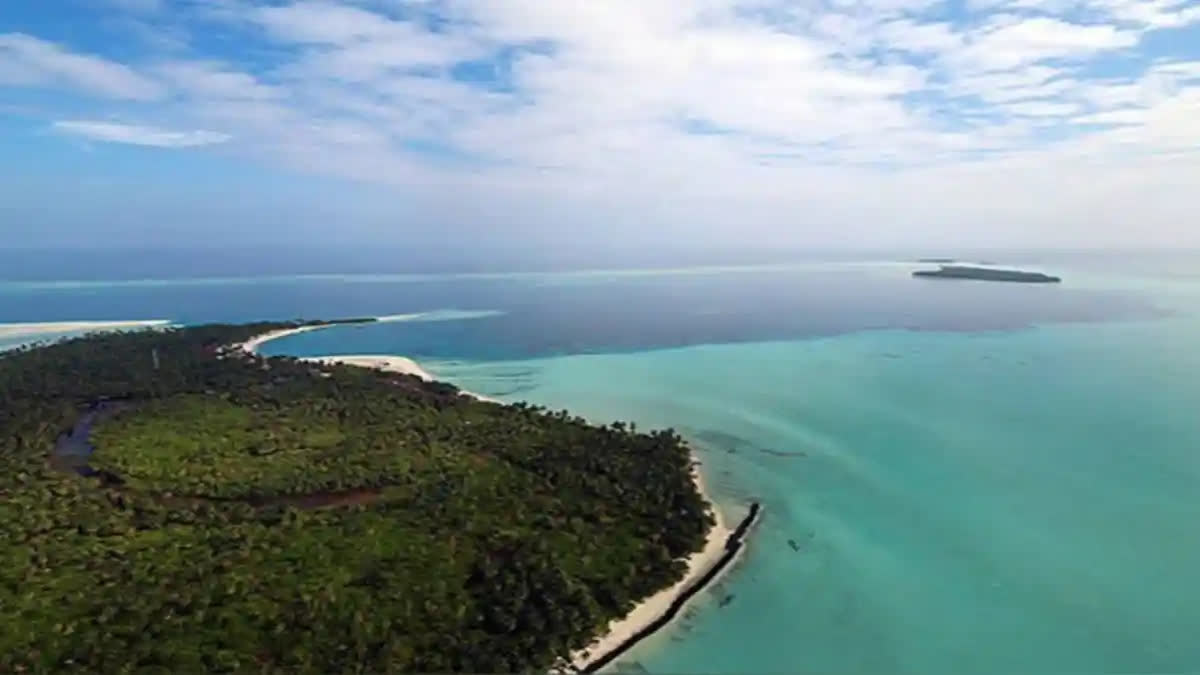New Delhi: In what can be a bid to dispel India’s security concerns amid a diplomatic row between New Delhi and Male, the Maldives government has said that a Chinese ship headed towards the Indian Ocean archipelago nation will not conduct any research work. The Sun Online news website cited the Maldivian Foreign Ministry as saying in a statement on Tuesday that China had made a diplomatic request for the necessary clearances for the Chinese research vessel Xiang Yang Hong 3 to make a port call in Male in February “for rotation of personnel and replenishment”.
“The vessel would not be conducting any research while in the Maldivian waters,” the ministry was quoted as stating. It also stated that “such port calls not only enhance bilateral ties between the Maldives and its partner countries, but also demonstrate the centuries-old tradition of the Maldivian people welcoming vessels from friendly countries”.
The ministry statement comes after Damien Symon, an open-source intelligence researcher, reported that the Chinese ship was headed towards Male. “XIANG YANG HONG 03 the Chinese ocean research vessel heading to Male, Maldives is no stranger to the region, having conducted ocean surveys in 2019 & 2020, the vessel has been observed in the IOR, Bay of Bengal & Arabian Sea raising fresh concerns in #India,” Symon posted on X (formerly Twitter).
India had red-flagged both the Maldives and Sri Lanka last month about the entry of the vessel Xiang Yang Hong 3 into the waters of the south Indian Ocean. While Sri Lanka took into consideration India’s concerns and put a one-year moratorium on the entry of all foreign research vessels, the Maldives has gone ahead and permitted the vessel to enter its waters. This decision came despite pressure from the Indian government and concerns raised by various quarters about the vessel being a “spy vessel”. The vessel was earlier scheduled to start conducting “deep water exploration” in Sri Lankan waters at the beginning of this month.
It is worth mentioning here that India has strongly been protesting the repeated visits by Chinese vessels to the waters of the south Indian Ocean, a region New Delhi considers to be under its sphere of influence, ostensibly for research purposes.
Ties between New Delhi and Male have been strained ever since pro-China Mohamed Muizzu was elected as the President of the Maldives in 2023 on a pronounced anti-India plank. He ran an ‘India Out’ campaign in which he called for the withdrawal of some Indian military personnel present in his country. These personnel, numbering less than 100, are primarily involved in humanitarian assistance and disaster relief work in the Indian Ocean archipelago nation. However, after assuming office, Muizzu made a formal request to India to withdraw these personnel.
Then, unlike the practice followed by his three immediate predecessors, new President Muizzu decided not to make his first state visit to India after assuming office on November 17. All three of his immediate predecessors Ibrahim Solih, known for his ‘India first’ policy, pro-China Abdulla Yameen and pro-India Mohamed Nasheed, who came to power after the country’s current constitution came into effect in 2008 and made it a point to make their first state visit to India after assuming office. It was a sign of the importance and priority the Maldives gives to India, its biggest and most influential neighbour. Muizzu instead, made a state visit to China earlier this month before visiting India.
The decision to grant entry to the Chinese vessel will also be a matter of concern for India as this comes after Male decided last month not to renew a hydrography agreement with New Delhi citing national security concerns and the safeguarding of sensitive information. The hydrographic survey agreement was signed on June 8, 2019, during Prime Minister Narendra Modi’s visit to the Maldives. Under the agreement, India was allowed to conduct a comprehensive study of the island nation’s territorial waters, which includes reefs, lagoons, coastlines, ocean currents and tide levels.
As part of New Delhi’s Neighbourhood First Policy, the Maldives is strategically significant to India because of its location in the Indian Ocean. India and the Maldives share ethnic, linguistic, cultural, religious and commercial links steeped in antiquity and enjoy close, cordial and multi-dimensional relations. However, regime instability in the Maldives since 2008 has posed significant challenges to the India-Maldives relationship, particularly in the political and strategic spheres.
Although India continues to be an important partner of the Maldives, New Delhi cannot afford to be complacent over its position and must remain attentive to the developments in the Maldives. India must play a key role within the Indo-Pacific security space to ensure regional security in South Asia and surrounding maritime boundaries. China’s strategic footprint in India’s neighbourhood has increased. The Maldives has emerged as an important ‘pearl’ in China’s ‘String of Pearls’ construct in South Asia.
Meanwhile, in an interesting development, after news that the Xiang Yang Hong 3 will not be conducting research work emerged in the Maldivian local media, the Maldives Foreign Ministry blocked access to its website.
- " class="align-text-top noRightClick twitterSection" data="">
Read more: Maldives Seeks To Look Beyond India And Sri Lanka For Healthcare



